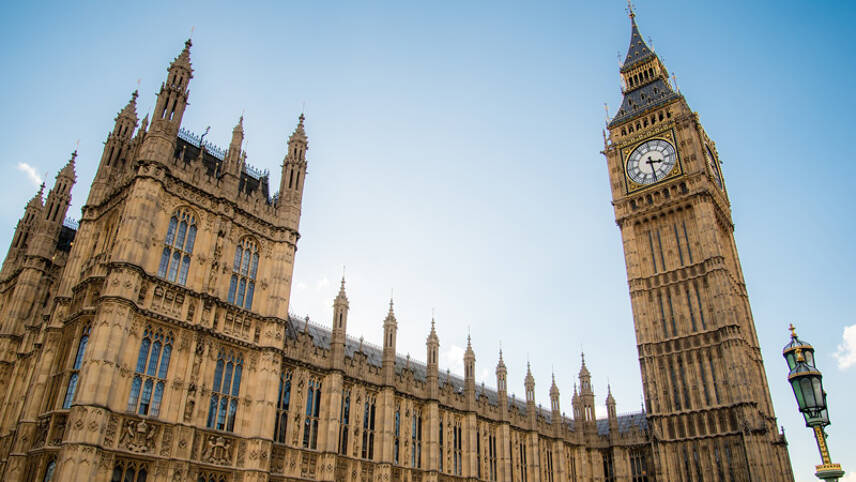Register for free and continue reading
Join our growing army of changemakers and get unlimited access to our premium content

Despite calls not to do so from green groups, the private sector and more than 100 Conservative MPs, Sunak gave a speech on Tuesday (20 September) stating he will weaken certain targets set under Boris Johnson and Theresa May. His argument for making the changes centre around shifting cost burdens away from households and small businesses at this moment in time.
Sunak said: “I believe deeply that, when you ask most people about climate change, they want to do the right thing. They’re even prepared to make sacrifices. But it cannot be right for Westminster to impose such significant costs on working people – especially those already struggling to make ends meet.”
He argued that there has been a “lack of meaningful democratic debate about how we get [to net-zero]” and accused previous governments of making green commitments without either properly funding their delivery or communicating what they would entail to the general public.
Sunak said: “The Climate Change Committee (CCC) have rightly said that we won’t reach net-zero simply by wishing it. But that is precisely what previous Governments have done – both Labour and Conservative.
“I’ll have no truck with anyone saying we lack ambition, but there’s nothing ambitious about simply asserting a goal for a short-term headline without being honest with the public about the tough choices and sacrifices involved – and without any meaningful democratic debate about how we get there.”
It bears noting that the CCC has also stated that the UK is not on track to achieve its legally binding 2050 climate target. In fact, it believes progress has weakened since last year.
Sunak clearly does not agree. He stated that the UK is “far ahead of every other country in the world” on decarbonisation, citing a steep drop in domestic emissions since 1990. He said he believes “over-delivery” on past carbon budgets is proof that market forces will drive decarbonisation more rapidly than expected.
What’s going to change?
The speech included confirmation of a five-year delay on the ban on new petrol and diesel car sales. This was set for 2030 under Boris Johnson but will now be amended to 2035. This is aligned with the date in the EU and many US states.
Sunak said he does not see the role of the Government as forcing individual motorists or businesses with fleets – especially SMEs – to switch to EVs. He stated that he believes most cars and vans sold in 2030 will be zero-emission but argued that market forces will bring the cost down without the kind of government intervention promised under Johnson.
Sunak additionally moved a ban on oil boilers in off-grid homes, initially set for 2026, to 2035. A wider plan to phase out 100% of domestic gas boilers by 2035 has also been weakened to 80%.
Sunak made these changes in recognition of the high upfront costs of heat pumps. To help address this concern, Sunak increased the maximum amount any home can claim through the Boiler Upgrade Scheme by 50%, to £7,500.
Proposals for new energy efficiency regulations on homes from 2025 were scrapped, as were plans to fine landlords for failing to upgrade homes to improve their Energy Performance Certificate (EPC) rating.
Sunak said the Government wanted to incentivise energy efficiency improvements – not force them. Earlier this month, a new £1bn ‘Great British Insulation Scheme’ was launched, but it fell short of the national street-by-street design proposed by many green groups.
The UK is notably aiming for all homes to be EPC ‘C’ grade or higher by 2035. At present, only four in ten homes meet this threshold.
Lastly, Sunak axed reforms to home recycling schemes first promised in the 2018 Resources and Waste Strategy.
Sunak also ruled out several moves under his leadership. These include an end to oil and gas licencing, any additional taxes on meat and dairy and any additional taxes on flying.
We will never impose unnecessary and heavy-handed measures on you, the British people.
We will still meet our international commitments and hit Net Zero by 2050. pic.twitter.com/XjXQzGVaCN
— Rishi Sunak (@RishiSunak) September 20, 2023
Poor reaction
Sunak touted his approach as “pragmatic, proportionate, realistic” and said he is certain that the 2050 net-zero target will be met.
Few thought leaders in the green economy agree. There has also been widespread challenge to Sunak’s assertion that the changes announced today are a move away from short-term thinking.
You can read edie’s round-up of reactions here.


Please login or Register to leave a comment.